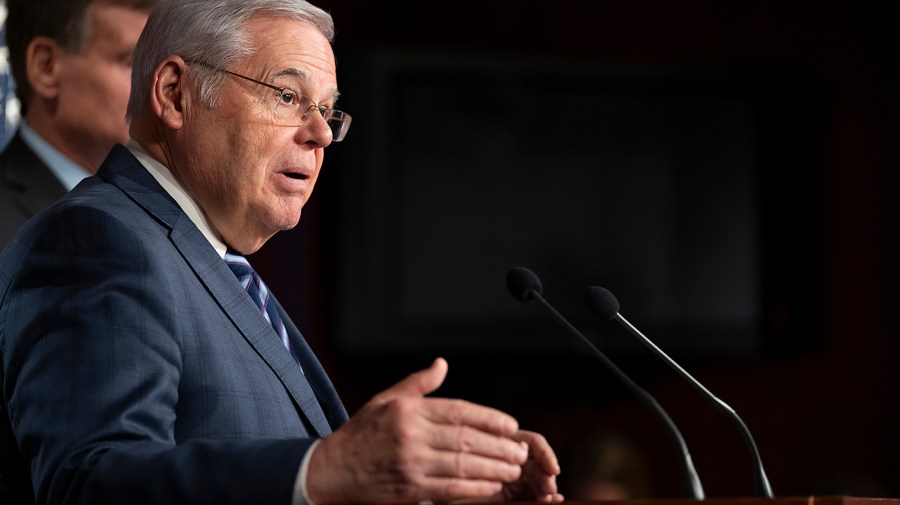Attorneys for Sen. Bob Menendez (D-N.J.) argued Wednesday that the large trove of cash and gold discovered by law enforcement in a raid on his home isn’t from corrupt deals, but instead a result of generational trauma and a habit to hoard reserves.
Menendez, his wife and two business partners were charged last year in a sweeping corruption case, alleging the senator sold influence and received hundreds of thousands of dollars in cash, gold and gifts in return.
His defense argued in a filing Wednesday that the discovery of $480,000 cash and 13 gold bars at his home was from a habit rooted in psychological trauma tied to his father’s suicide and a family history of confiscated property in Cuba.
His attorneys have requested that a psychologist be called into the trial to question Menendez on the claims. Prosecutors have resisted the idea.
The psychologist is “expected to testify that Senator Menendez suffered intergenerational trauma stemming from his family’s experience as refugees, who had their funds confiscated by the Cuban government and were left with only a small amount of cash that they had stashed away in their home,” the filing reads.
Menendez also “experienced trauma when his father, a compulsive gambler, died by suicide after Senator Menendez eventually decided to discontinue paying off his father’s gambling debts,” the filing continued.
It describes hoarding cash and gold at home as a “coping mechanism” from trauma which never received treatment.
The filing follows similar claims from Menendez made short after the charges were filed last year. He initially explained away the cash and gold findings by saying the habit was common among immigrant families, adding it was intended for “emergencies.”
Prosecutors said the request for a psychologist is merely an attempt to bias the jury to “engender sympathy based on his family background, in the guise of expert testimony.”
Menendez and his wife face separate trials in the case. All four defendants have pleaded not guilty to the charges.
The senator’s trial is scheduled to start May 13.
